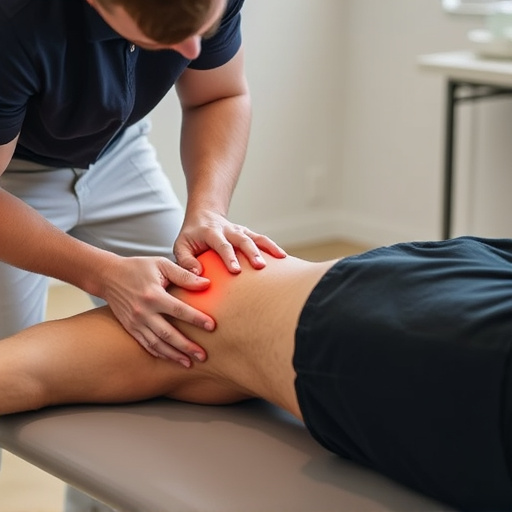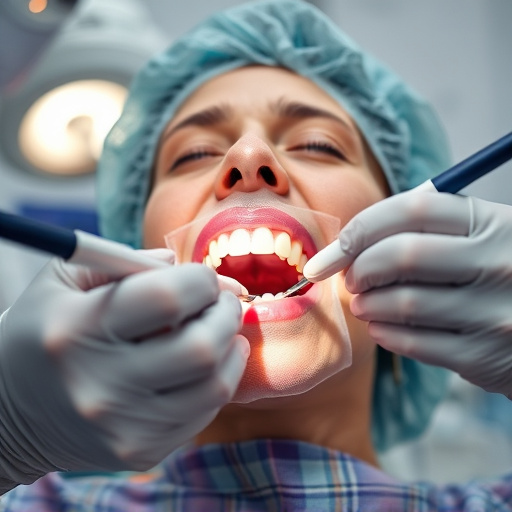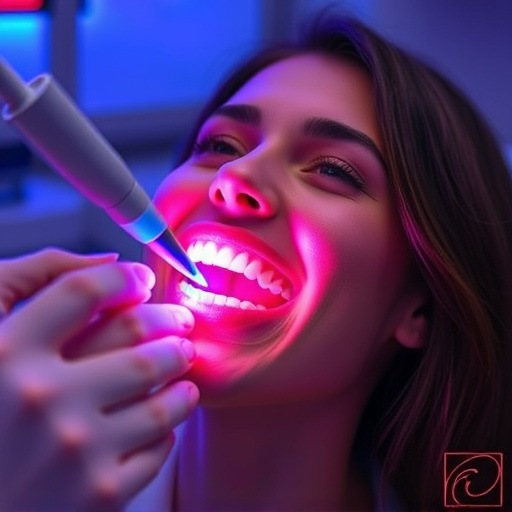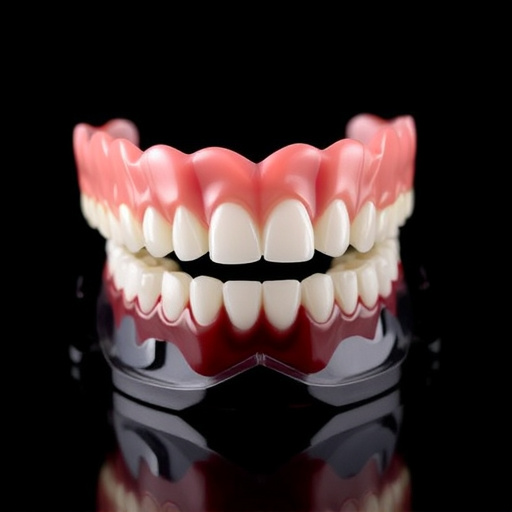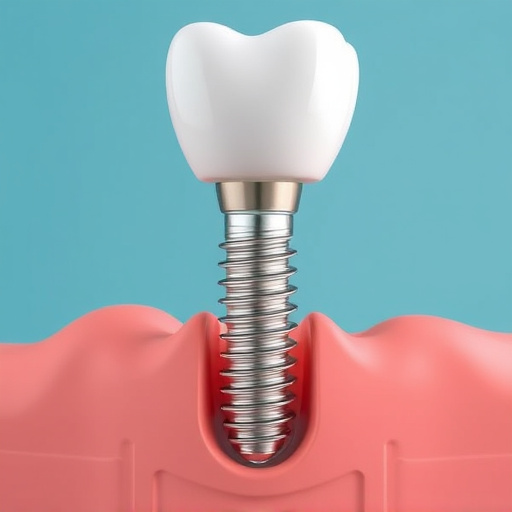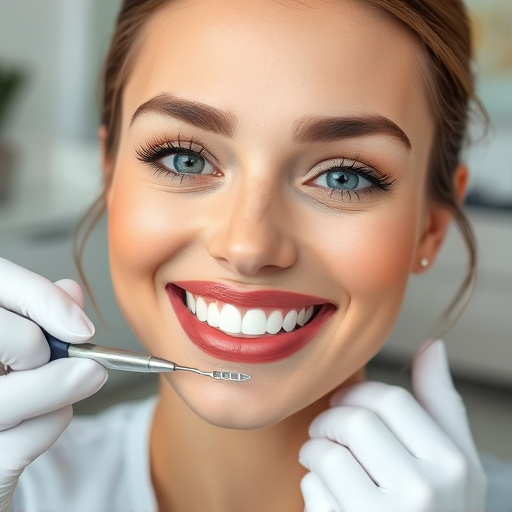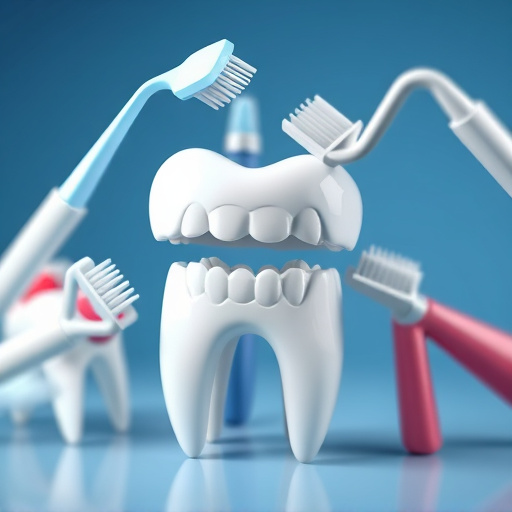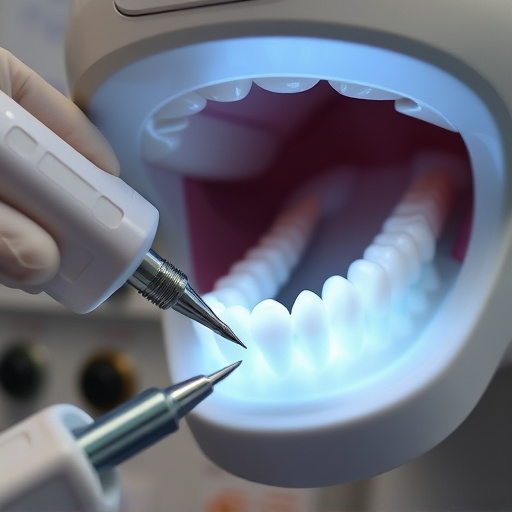Daytime teeth grinding (bruxism) is a common issue linked to stress, anxiety, and habits like gum chewing. Recognize triggers for effective treatment, including lifestyle changes like meditation and yoga. Non-invasive options like dental therapy, bite splints, mouth guards, and fillings restore oral health. Holistic approaches addressing muscle tension, caffeine intake, and habits improve outcomes. Regular dental cleanings are crucial.
Daytime teeth grinding, or bruxism, can cause significant wear and tear on your smile. Don’t let persistent daytime grinding go untreated—it could lead to tooth damage, headaches, and jaw pain. This article explores effective treatments for stopping day-time teeth grinding. We’ll delve into the causes and triggers, from stress to sleep issues. You’ll discover a range of non-invasive options and essential lifestyle changes to find lasting relief and protect your oral health.
- Understand Daytime Teeth Grinding Causes and Triggers
- Explore Non-Invasive Treatment Options for Relief
- Lifestyle Changes and Habits to Break the Cycle
Understand Daytime Teeth Grinding Causes and Triggers
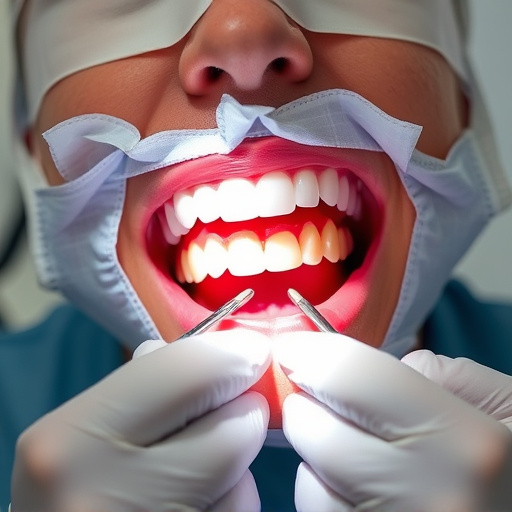
Daytime teeth grinding, or bruxism, is a common but often overlooked issue. Understanding its causes and triggers is a crucial step in finding effective teeth grinding treatment. This habit can be triggered by stress, anxiety, certain medications, or even as a side effect of some medical conditions. Identifying these initiators is essential in managing the condition. For instance, if stress is a factor, incorporating relaxation techniques like meditation or yoga into your daily routine might help alleviate symptoms.
Additionally, certain behaviors such as chewing gum, nail-biting, or clenching your jaw can contribute to daytime teeth grinding. It’s also worth noting that some people experience bruxism as a sleep disorder, while others grind their teeth unconsciously during the day. Recognizing these patterns will help guide you towards suitable teeth grinding treatment options, whether it’s through simple lifestyle changes, oral devices, or in severe cases, dental interventions like crowns or fillings to restore damaged teeth.
Explore Non-Invasive Treatment Options for Relief
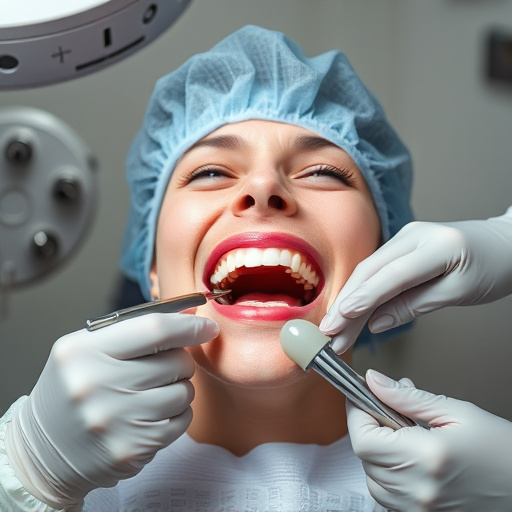
If you’re seeking Daytime Teeth Grinding Treatment solutions, exploring non-invasive options can provide significant relief. One effective approach is dental therapy, which includes techniques like bite splints or mouth guards. These devices protect your teeth and jaw during the day, reducing the stress and pressure that cause grinding. They are customizable to fit your unique dentition, ensuring comfort and effectiveness.
Additionally, regular dental cleanings and check-ups play a crucial role in managing teeth grinding. By removing plaque and tartar buildup, these visits help maintain oral health and can prevent further complications like tooth decay or gum disease, which may exacerbate grinding issues. In some cases, non-invasive treatments might include dental fillings to address any existing damage caused by grinding, offering both functional and aesthetic benefits.
Lifestyle Changes and Habits to Break the Cycle
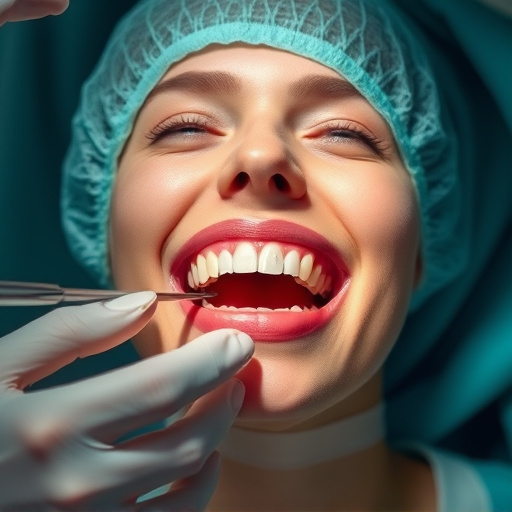
Breaking the cycle of daytime teeth grinding requires a multifaceted approach that goes beyond just addressing symptoms. Lifestyle changes play a crucial role in teeth grinding treatment. One effective strategy is to manage stress levels through relaxation techniques such as deep breathing, meditation, or yoga. These practices can help reduce tension in the jaw and facial muscles, which are often the primary triggers for daytime grinding.
Additionally, it’s essential to break habits that exacerbate the condition. This includes limiting caffeine intake, especially later in the day, as it can stimulate jaw muscle activity. Avoiding chewing gum or biting your nails—common stress-relief habits—can also help alleviate teeth grinding. Regular dental cleanings and checkups are vital for maintaining oral health and detecting any underlying issues that might contribute to the habit. Incorporating these lifestyle adjustments into your routine can significantly improve your overall treatment outcomes and quality of life.
Daytime teeth grinding, though less common than nocturnal bruxism, can significantly impact quality of life. Understanding its causes and triggers is the first step towards effective management. Non-invasive treatment options, such as mouthguards and behavioral therapies, offer promising relief for many. Additionally, adopting healthy lifestyle changes and breaking harmful habits can substantially mitigate the issue. By combining these approaches, individuals can find lasting solutions to daytime teeth grinding, enhancing their overall well-being. Effective teeth grinding treatment is within reach, empowering folks to take control of their oral health.




